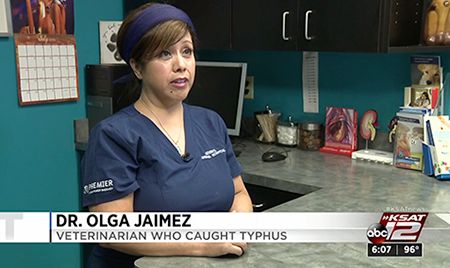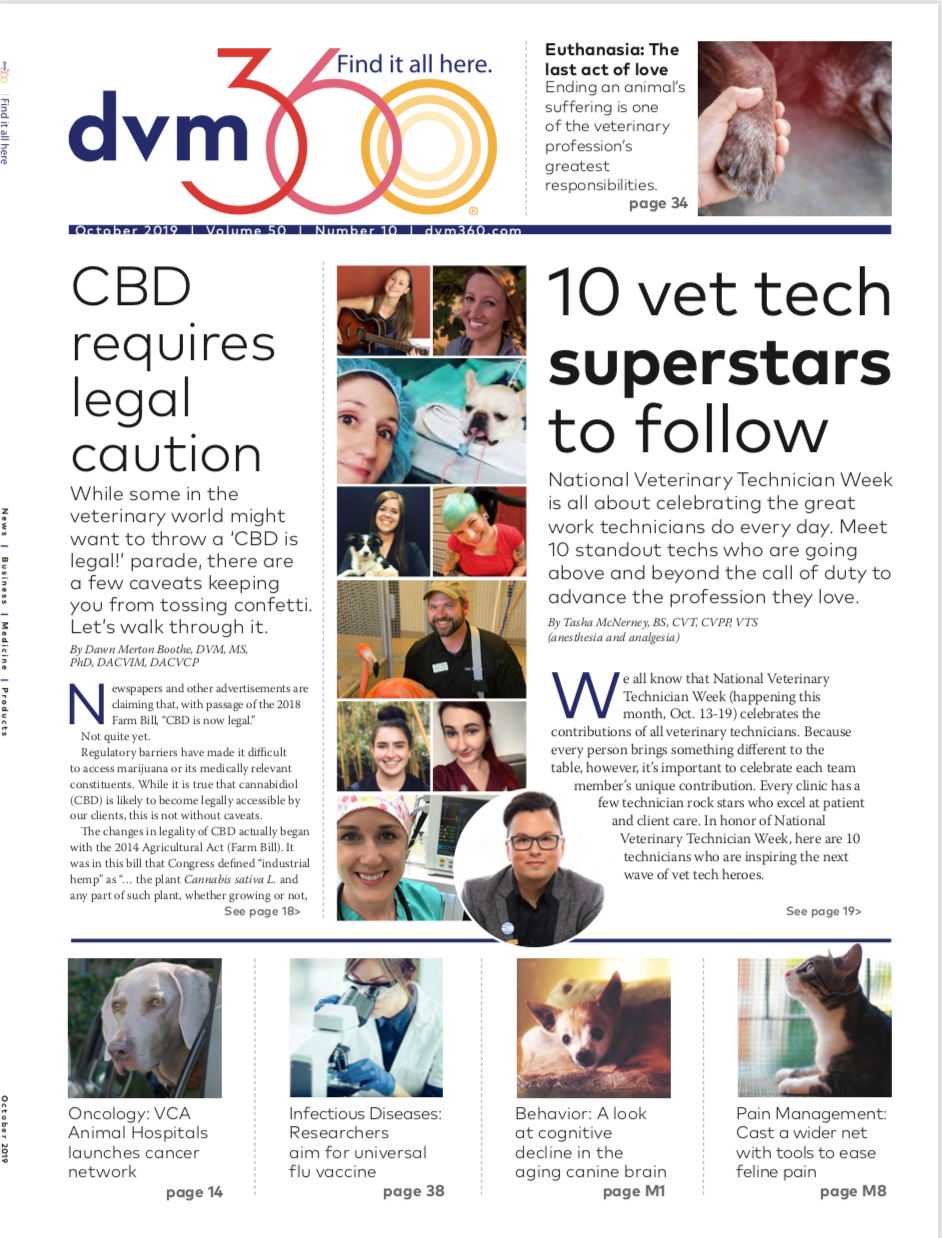Texas veterinarian, technician infected with murine typhus
A San Antonio veterinarian warns others after she and one of her technicians contracted the rare flea-spread disease.
A video still from the KSAT TV broadcast in which San Antonio veterinarian Olga Jaimez discusses her experience with murine typhus.

What started as a fever and flulike symptoms quickly escalated to a frightening six-day hospital stay for San Antonio, Texas, veterinarian Olga Jaimez, DVM, who was diagnosed with murine typhus around the same time as one of her technicians, according to KSAT TV.
Dr. Jaimez, who owns 4 Paws Animal Hospital, told the news outlet she had a fever that spiked to 103 F, red spots all over body and difficulty breathing. “I thought I was going to die,” she said.
Transmission details
Murine typhus, which is caused by the bacterium Rickettsia typhi, is transmitted primarily by rodents, according to the Centers for Disease Control and Prevention (CDC). Fleas become infected when they bite an infected animal, such as a rat, cat or opossum. When an infected flea then bites another animal or person and the flea dirt (feces) is rubbed into the tiny wound, infection can occur. Infected flea dirt can also be inhaled or rubbed into the eyes. Typhus is not spread from person to person.
Most cases of murine typhus in the U.S. occur in Texas, Hawaii and southern California, according to the CDC. Last year, 101 cases were reported in Bexar County, where San Antonio is located, and 152 cases were reported in Hidalgo County, located in far southern Texas, according to Texas Department of State Health Services press officer Lara M. Anton. “As of August 28, 2019, ” Anton told dvm360, “308 cases had been reported in the state.
Roadblocks to diagnosis
Because signs and symptoms of murine typhus mirror those of other diseases, it can be challenging to diagnose. Symptoms can include fever and chills, body aches and muscle pain, loss of appetite, nausea, vomiting, stomach pain, cough and rash (rash typically occurs around day five of illness), according to the CDC. If a veterinary professional or client experiences any of these symptoms and tests negative for the flu, Dr. Jaimez told KSAT News that she recommends they get tested for murine typhus.
Laboratory testing for this disease and reporting results can take several weeks, according to the CDC. In fact, Dr. Jaimez told San Antonio Express-News that she started exhibiting symptoms in June and didn't receive an official diagnosis until the end of July.
A promising prognosis
Dr. Jaimez, who had a more serious case of the flea-borne illness that caused her to lose a month of work, was treated with a 19-day course of doxycycline, according to San-Antonio Express-News. Most people fully recover with (and sometimes without) treatment.
Murine typhus typically doesn't cause serious illness. In rare cases, however, untreated disease can cause damage to one or more major organs (e.g. liver, kidneys, heart, lungs, brain). That's why Dr. Jaimez is urging her clients to practice flea control for their pets as a form of prevention.
Jennifer A. Johnson, DVM, medical director at VCA Health Associates Animal Hospital in San Antonio, agrees. “Our clinic is a very strong proponent of flea and tick products in general. We discuss it as a safety measure for pets,” Dr. Johnson told dvm360, adding that they now discuss parasite control as a preventive safety measure for their clients and their families as well.
Although Dr. Johnson has yet to see any patients or clients with murine typhus, her daughter was tested for the disease when she presented with a high fever, rash and headaches. Her daughter tested negative for the illness, but the very fact that her daughter was tested for such a rare disease was still highly concerning. Dr. Johnson said she uses her personal story to raise awareness about murine typhus with clients so they can be on alert.
“I will sometimes share with clients how scary it was to have a sick child tested for a disease that I didn't even realize was possible to catch here in San Antonio,” Dr. Johnson said.
